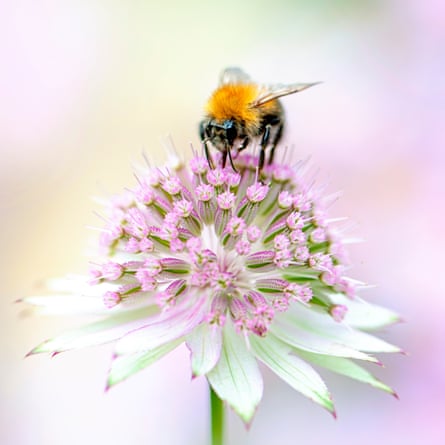British beekeepers support proposed regulations aimed at preventing fraud in the supply chain. These regulations would allow for the tracing of a jar of honey on its journey of up to 5,000 miles from the hive to the store.
The European parliament has approved fresh guidelines for labeling and a plan to create a traceability system for honey, from production to consumption. These regulations are a part of the revision of the “breakfast directives”, which includes the honey directive.
British honey producers and sellers are advocating for the adoption of regulations in the United Kingdom. Honey is a frequently targeted food by fraudulent individuals, as evidenced by a European Commission study in March which revealed that 46% of tested products were suspected of being adulterated.
Lynne Ingram, an expert beekeeper at Wesley Cottage Bees in Somerset, and also the chair of the Honey Authenticity Network UK, expressed her support for the new EU honey directive. She believes that these changes will help prevent the sale of fake honey and give consumers greater assurance in the quality and authenticity of their purchases.
As per current regulations in the EU and UK, it is not mandatory to specify the countries of origin for honey that is a blend of multiple countries. However, according to the proposed new EU laws, the country of origin must be indicated and further studies will be carried out to find digital methods to trace honey throughout the supply process.
The government is under pressure to ensure that honey producers disclose the same information to consumers in the UK. The government has stated in the past that requiring country of origin labeling for honey would be difficult and lead to higher production costs.

Iain Millar, one of the founders of the Scottish Bee Company, expressed his desire for the UK to also implement country of origin labelling for food products. Without it, consumers in the UK will have less access to information about the origin of their food compared to consumers in Europe. This labelling is essential in understanding the source of honey.
China is the largest honey exporting country, with the United Kingdom being its primary customer. In 2022, China exported over 156,000 tons of honey, while the UK imported more than 34,000 tons. The global honey supply chain is vulnerable to fraudulent activities, as some individuals may mix cheaper sugar syrup into the honey. Chinese honey has been a common target, as some industrial units have been promoting the use of fructose syrup in honey, falsely claiming that it can bypass the standard tests conducted by regulators.
German labs have conducted tests on British supermarket honey in recent times, which were funded by private entities. These tests have hinted at the possibility of contamination, but importers and supermarkets have dismissed the results as untrustworthy. The Food Standards Agency states that further efforts are needed to develop dependable methods for identifying adulterated honey.
The European Commission’s testing of imported honey last year revealed that the majority of questionable shipments came from China. Out of 89 flagged consignments, 66 were traced back to China. Additionally, all 10 samples from the UK were suspected of being adulterated, although it is possible that this honey originated from other countries and was then exported by the UK.
Many beekeepers have raised concerns about Chinese honey due to the widespread practice of harvesting it prematurely from hives and artificially dehydrating it to lower its moisture content. The official definition of honey is that it must be allowed to fully mature inside the beehive.
Norberto Garcia, who is the chair of the beekeeping economy commission for Apimondia, the International Federation of Beekeepers’ Associations, stated that creating unripe honey is an unethical practice that violates the natural maturation process and harms traditional production methods.
The speaker stated that this has a negative effect on ethical beekeepers and results in misleading customers who do not receive the product they paid for. They also mentioned that Apimondia is in favor of the revision of the honey regulations.
A representative from Defra stated that they are aware of the recent EU proposals regarding honey. While there is a tentative agreement on the proposals, they have not yet been fully accepted.
“We are reviewing their technical specifications and collaborating with UK producers, businesses, and stakeholders to support British exports and minimize potential consequences. Our decision regarding our own policies will prioritize upholding our current food standards, safeguarding consumers, and aiding businesses and consumer selection across various price ranges.”
The British Honey Importers and Packers Association (BHIPA) and its members have a long history of collaborating with UK regulators in an active and open manner. They are committed to ensuring that all honey sold in the UK meets legal standards, which are strictly enforced by government agencies. The BHIPA also endorses efforts to increase confidence and transparency for UK consumers regarding the origins of honey. Currently, the country of origin is already disclosed on single source honey products in the UK.
In the future, any choices made about the various techniques used to produce honey worldwide should be thoughtfully evaluated to prevent unfair discrimination against specific types of honey based solely on their country of origin.
Source: theguardian.com

















